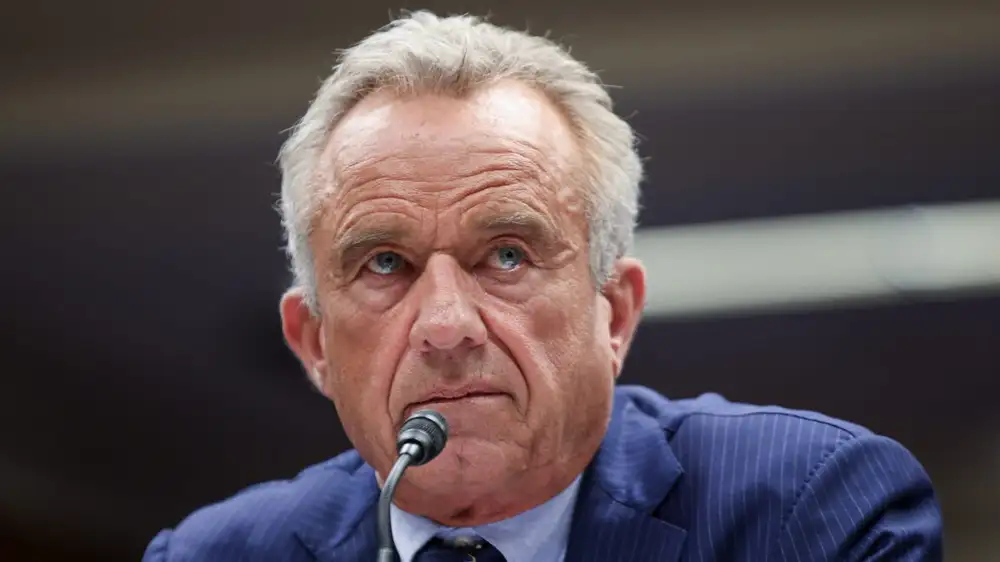With ardent anti-vaccine activist Robert F. Kennedy Jr. in the country's top health position, use of a long-approved vaccine against measles, mumps, rubella, and varicella/chickenpox (MMRV) as well as flu shots that include the preservative thimerosal will now be reevaluated, putting their future availability and use in question. The development seemingly continues to vindicate health experts' worst fears that, as health secretary, Kennedy would attack and dismantle the federal government's scientifically rigorous, evidence-based vaccine recommendations.
Discussions of the two types of vaccines now appear on the agenda of a meeting for the Centers for Disease Control and Prevention's Advisory Committee for Immunization Practices (ACIP) scheduled for two days next week (June 25 and 26).
ACIP’s overhaul
On June 9, Kennedy summarily fired all 17 members of ACIP, who were rigorously vetted—esteemed scientists and clinicians in the fields of immunology, epidemiology, pediatrics, obstetrics, internal and family medicine, geriatrics, infectious diseases, and public health. Two days later, Kennedy installed eight new members, many with dubious qualifications and several known to hold anti-vaccine views.
Before ACIP was upended by Kennedy, the committee planned to meet for three days, from June 25 to 27, to discuss a wide array of vaccines, including those against anthrax, chikungunya, COVID-19, cytomegalovirus (CMV), Human papillomavirus (HPV), influenza, Lyme disease, meningococcal disease, pneumococcal disease, and respiratory syncytial virus (RSV). The committee was going to vote on recommendations for the use of COVID-19 vaccines, the HPV vaccine, influenza vaccines, the meningococcal vaccine, RSV vaccines for adults, and the RSV vaccine for maternal and pediatric populations.
In the new agenda, discussion on vaccines against CMV, HPV, Lyme disease, meningococcal disease, and pneumococcal disease has been dropped. So have votes for COVID-19 vaccines, HPV, meningococcal vaccines, and RSV vaccines for adults. Instead, the new ACIP will now discuss MMRV and influenza vaccines containing thimerosal. It will only vote on two matters: RSV vaccines for children and pregnant people, and influenza vaccines, including thimerosal-containing flu vaccines.
The loss of a vote on COVID-19 vaccines is perhaps not surprising, since Kennedy already unilaterally altered CDC recommendations for those vaccines, restricting their use in healthy children and pregnant people. It remains unclear what those changes will mean in practical terms for people in those groups who want to get the vaccines—whether they will need prescriptions from their doctors and how insurance coverage will work. And it's unclear if those questions will be addressed, let alone answered, in the upcoming meeting.
New agenda
Among the new agenda items is MMRV or ProQuad, which was approved by the Food and Drug Administration in 2005. Like other measles vaccines, it has been the target of anti-vaccine misinformation and disinformation, including from the anti-vaccine organization Kennedy founded, Children's Health Defense.
For now, the CDC recommends that children get two doses of vaccines against measles, mumps, rubella, and varicella (chicken pox), with the first doses between the ages of 12 to 15 months and then the second doses between the ages of 4 and 6 years. For both time frames, parents can choose between the MMRV vaccine or separate MMR and varicella vaccines. Given the options, the CDC recommends starting with MMR and a separate varicella vaccine for the first doses between 12 to 15 months.
The new ACIP agenda does not include a vote on recommendations for MMRV, but the agenda includes the line item "Proposed recommendations regarding MMRV in children under 5 years of age" with a presenter listed as "TBD."
The newly listed discussion on thimerosal-containing flu vaccines also has an agenda item of "Proposed recommendations regarding thimerosal containing influenza vaccine." But the agenda also includes a vote for these types of vaccines, offering a stronger signal that the CDC may alter its recommendations for flu vaccines.
Thimerosal is a mercury-based preservative that has long been the focus of misinformation from anti-vaccine advocates, who have falsely linked it to autism. The false belief that vaccines—whether they contain thimerosal or not—cause autism has been thoroughly and repeatedly debunked. Moreover, out of an abundance of caution, thimerosal was removed from childhood vaccines in 2001.
However, the preservative is still used in influenza vaccines that are sold in multi-dose vials (single-dose vials do not contain it). The preservative protects against contamination in the larger vials.
Questionable committee
Kennedy, in particular, has long railed against thimerosal. In 2005, he wrote an infamous article for Rolling Stone magazine and Slate, titled "Deadly Immunity," in which he falsely claimed that thimerosal in vaccines caused autism and that the pharmaceutical industry and public health officials around the world colluded in a grand conspiracy to hide the truth. The article was widely criticized, riddled with inaccuracies, and later retracted and deleted by both publications. However, Kennedy's hand-selected ACIP members will raise the issue again.
For more than 60 years, ACIP has been an enormously influential committee that guides the country's recommendations and clinical use of vaccines. It uses a rigorous process of evaluating various scientific data in meetings that are recorded and publicly available, along with all the presentation data and disclosure information. The CDC generally adopts the committee's recommendations and, once it does, health insurance companies are obligated to pay for those recommended vaccinations. The process overall sets a global standard, and the CDC has been the trusted source of vaccination practices for clinicians around the country. But, with Kennedy's undermining, experts now fear the CDC will no longer be a trusted source of guidance.
Kennedy's new ACIP lineup includes anti-vaccine activist and conspiracy theorist Robert Malone; biostatistician Martin Kulldorff, who advocated for letting COVID-19 spread freely during the acute phase of the pandemic; Vicky Pebsworth, who is on the board of an anti-vaccine organization; operations management professor Retsef Levi, who has authored articles alleging dangers of COVID-19 vaccines; psychiatrist Joseph Hibbeln; pediatrician Cody Meissner; emergency medicine physician James Pagano; and professor of obstetrics and gynaecology Michael Ross.

 McDonald’s launching massive Big Arch burger in yet another country as US fans wait
McDonald’s launching massive Big Arch burger in yet another country as US fans wait